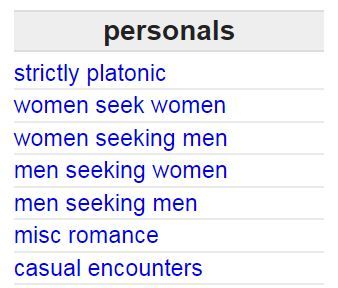The Agender, Aromantic, Asexual Queer Motion — The Cut
Gender on Campus
Identity-
100 % Free
Identification
Politics
A study from
the agender,
aromantic, asexual
front range.

Photographs by
Elliott Brown, Jr.
NYU course of 2016
“Currently, we say that i will be agender.
I am removing myself from social construct of gender,” says Mars Marson, a 21-year-old NYU film significant with a thatch of short black colored locks.
Marson is speaking with me personally amid a roomful of Queer Union students during the college’s LGBTQ pupil heart, where a front-desk container supplies free of charge buttons that let website visitors proclaim their particular favored pronoun. Regarding the seven pupils collected at Queer Union, five like the single
they,
supposed to signify the sort of post-gender self-identification Marson describes.
Marson was born a lady biologically and arrived as a lesbian in senior high school. But NYU ended up being a revelation â somewhere to understand more about transgenderism following decline it. “I don’t feel attached to the phrase
transgender
since it feels much more resonant with digital trans people,” Marson claims, making reference to people who want to tread a linear path from female to male, or vice versa. You could claim that Marson while the other pupils during the Queer Union identify rather with getting somewhere in the midst of the trail, but that’s not exactly right sometimes. “I think âin the center’ nevertheless sets male and female while the be-all-end-all,” claims Thomas Rabuano, 19, a sophomore drama major whom wears beauty products, a turbanlike headband, and a flowy top and top and alludes to Lady Gaga as well as the gay character Kurt on
Glee
as large teenage character versions. “i love to think of it outdoors.” Everybody in the team
personals m4m-hmmm
s acceptance and snaps their unique hands in agreement. Amina Sayeed, 19, a sophomore from Des Moines, believes. “old-fashioned ladies garments tend to be feminine and colourful and accentuated the truth that I got breasts. We disliked that,” Sayeed claims. “Now we claim that i am an agender demi-girl with connection to the feminine digital sex.”
On the far side of university identity politics
â the places once occupied by lgbt pupils and soon after by transgender people â you now discover pouches of college students such as these, young adults for whom tries to classify identity experience anachronistic, oppressive, or perhaps sorely irrelevant. For more mature generations of gay and queer communities, the endeavor (and pleasure) of identity research on university will appear notably common. Nevertheless the variations nowadays tend to be striking. The present project isn’t just about questioning your own identity; it’s about questioning the very nature of identification. You might not end up being a boy, however may not be a girl, sometimes, and just how comfortable are you making use of the concept of becoming neither? You may want to rest with guys, or females, or transmen, or transwomen, therefore might want to become mentally a part of them, as well â but perhaps not in identical combo, since why should your enchanting and sexual orientations necessarily have to be exactly the same thing? Or why think about direction after all? Your own appetites may be panromantic but asexual; you will determine as a cisgender (maybe not transgender) aromantic. The linguistic options are nearly unlimited: plenty of language designed to articulate the part of imprecision in identification. And it’s a worldview that is very much about words and feelings: For a movement of young adults pressing the limits of desire, it could feel amazingly unlibidinous.
A Glossary
The Involved Linguistics of Campus Queer Movement
A few things about gender haven’t changed, and never will. But for those who are who visited college many years ago â or just a few in years past â many of the newest intimate terminology are unknown. Under, a cheat sheet.
Agender:
a person who identifies as neither male nor feminine
Asexual:
an individual who does not encounter sexual interest, but who can experience passionate longing
Aromantic:
someone who does not experience passionate longing, but does knowledge sexual desire
Cisgender:
maybe not transgender; their state wherein the sex you determine with fits the only you used to be assigned at delivery
Demisexual:
one with minimal libido, generally thought just in the context of deep psychological hookup
Gender:
a 20th-century restriction
Genderqueer:
a person with an identification outside the standard gender binaries
Graysexual:
a more wide term for someone with minimal sexual interest
Intersectionality:
the belief that sex, competition, class, and intimate direction can’t be interrogated separately from 1 another
Panromantic:
somebody who is actually romantically thinking about anybody of any gender or positioning; it doesn’t necessarily connote accompanying intimate interest
Pansexual:
someone who is intimately enthusiastic about anybody of every sex or direction
Reporting by
Allison P. Davis
and
Jessica Roy
Robyn Ochs, a former Harvard officer who was on class for 26 years (and whom started the college’s team for LGBTQ faculty and employees), views one significant reason why these linguistically complicated identities have actually quickly come to be very popular: “I ask younger queer people how they learned the labels they describe themselves with,” states Ochs, “and Tumblr will be the #1 response.” The social-media system features produced so many microcommunities worldwide, including Queer Muslims, Queers With Disabilities, and Trans Jewry. Jack Halberstam, a 53-year-old self-identified “trans butch” professor of gender researches at USC, particularly alludes to Judith Butler’s 1990 guide,
Gender Trouble,
the gender-theory bible for campus queers. Quotes as a result, like the a lot reblogged “There’s no sex identification behind the expressions of sex; that identification is actually performatively constituted from the extremely âexpressions’ which are said to be their effects,” have become Tumblr lure â even the world’s minimum likely widespread content material.
But many of queer NYU college students we talked to didn’t become truly familiar with the vocabulary they now use to describe on their own until they attained college. Campuses are staffed by directors whom arrived of age in the first revolution of governmental correctness and at the height of semiotics-deconstruction mania. In school today, intersectionality (the theory that race, course, and gender identification are typical linked) is central with their way of recognizing just about everything. But rejecting groups entirely are sexy, transgressive, a good method to win a disagreement or feel special.
Or maybe which is as well cynical. Despite exactly how intense this lexical contortion may appear for some, the scholars’ wants to define by themselves beyond sex felt like an outgrowth of serious distress and strong scars from becoming increased for the to-them-unbearable role of “boy” or “girl.” Developing an identity that’s described by what you
are not
doesn’t appear specially easy. We ask the students if their brand new cultural permit to identify themselves beyond sex and sex, if pure plethora of self-identifying possibilities they’ve â eg Facebook’s much-hyped 58 gender selections, anything from “trans person” to “genderqueer” into vaguely French-sounding “neutrois” (which, in accordance with neutrois.com, shouldn’t be identified, because the really point of being neutrois is the sex is individual for you) â sometimes actually leaves them sensation as if they can be boating in area.
“personally i think like I’m in a candy store and there’s each one of these different options,” says Darya Goharian, 22, an elderly from an Iranian family in a rich D.C. area just who identifies as trans nonbinary. Yet even word
choices
is also close-minded for a few for the group. “I take concern with that word,” says Marson. “it will make it look like you’re choosing to end up being some thing, when it’s maybe not a selection but an inherent section of you as someone.”
Amina Sayeed recognizes as an aromantic, agender demi-girl with connection to the female digital sex.
Picture:
Elliott Brown, Jr., NYU class of 2016
Levi straight back, 20, is actually a premed who was simply nearly knocked away from public senior school in Oklahoma after being released as a lesbian. However, “we determine as panromantic, asexual, agender â just in case you wanna shorten all of it, we could only get as queer,” straight back says. “I do not discover sexual appeal to any person, but i am in a relationship with another asexual person. We do not have intercourse, but we cuddle always, kiss, write out, hold arms. Everything you’d see in a PG rom-com.” Right back had formerly dated and slept with a lady, but, “as time went on, I was less into it, plus it turned into similar to a chore. I am talking about, it felt great, but it did not feel just like I found myself creating a stronger link during that.”
Today, with again’s existing gf, “plenty of what makes this connection is actually all of our mental connection. And just how open we’re with each other.”
Right back has begun an asexual group at NYU; ranging from ten and 15 men and women usually arrive to meetings. Sayeed â the agender demi-girl â is regarded as all of them, also, but identifies as aromantic in place of asexual. “I had had intercourse once I happened to be 16 or 17. Ladies before men, but both,” Sayeed states. Sayeed still has gender sporadically. “But Really don’t discover any kind of romantic attraction. I got never ever identified the technical word for it or any. I’m however capable feel love: I love my buddies, and that I love my loved ones.” But of dropping
in
really love, Sayeed claims, without the wistfulness or question that the might transform later on in daily life, “i assume i recently don’t realise why I ever would now.”
Such regarding the personal politics of the past was about insisting regarding the to sleep with any person; today, the sexual interest looks these a small element of present politics, including the legal right to say you have little to no desire to rest with anyone whatsoever. Which may appear to work counter on much more mainstream hookup culture. But alternatively, probably this is basically the then sensible step. If starting up has carefully decoupled sex from romance and feelings, this activity is actually making clear that you might have romance without gender.
Although the getting rejected of intercourse is certainly not by choice, necessarily. Maximum Taylor, a 22-year-old transman junior at NYU exactly who also identifies as polyamorous, says that it’s been harder for him currently since he began getting hormones. “i can not visit a bar and pick up a straight girl and also have a one-night stand easily anymore. It becomes this thing where if I wish to have a one-night stand i must clarify i am trans. My personal pool of people to flirt with is my personal neighborhood, where the majority of people learn both,” claims Taylor. “largely trans or genderqueer folks of color in Brooklyn. It feels like I’m never ever gonna fulfill somebody at a grocery shop again.”
The difficult language, too, can work as a layer of defense. “You can get very comfy here at the LGBT middle and obtain accustomed individuals inquiring the pronouns and everyone understanding you’re queer,” states Xena Becker, 20, a sophomore from Evanston, Illinois, exactly who determines as a bisexual queer ciswoman. “but it is still actually lonely, difficult, and complicated a lot of the time. Even though there are many more words doesn’t mean that thoughts are simpler.”
Additional revealing by Alexa Tsoulis-Reay.
*This article appears inside Oct 19, 2015 dilemma of
Ny
Mag.
